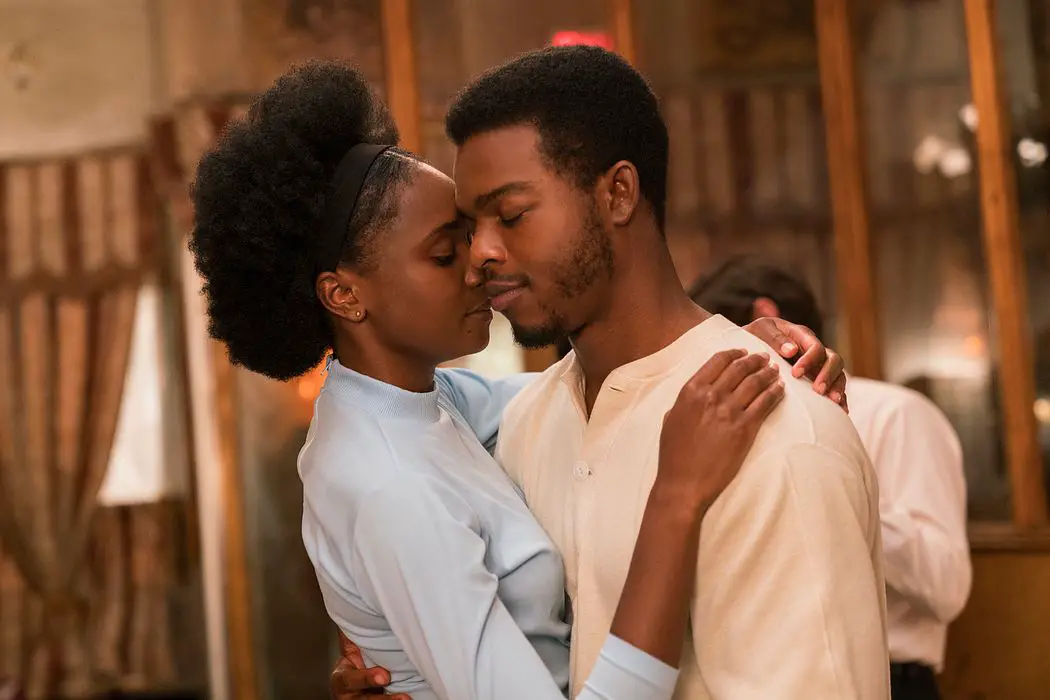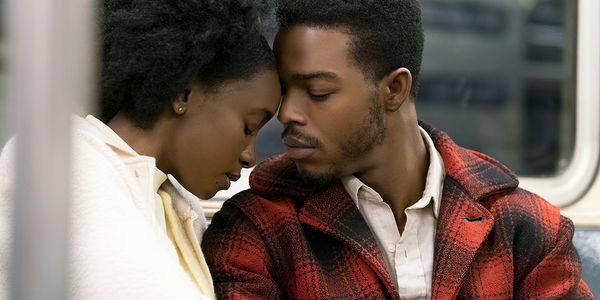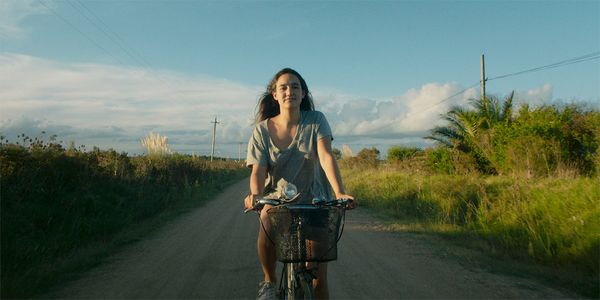Toronto International Film Festival 2018 Report Part 5: Striking The Perfect Chord

Tomas is a chronic cineaste who studied English literature in…
The New York Film Festival starts soon, but you know what? Let’s hold on to Toronto International Film Festival for a little while longer. The festivities may be over, and Green Book is now one step closer to being a Best Picture nominee (something I would not have expected three weeks ago, hence why I did not see it and cannot give you a review). Scotiabank Theatre is back to being a regular ol’ commercial venue, playing the latest blockbusters, while its escalators finally get a reprieve from the thousands of feet trampling on them. You know what isn’t getting a reprieve? This laptop that I’m typing on. I’ve still got a few dozen more reviews to send out to you all, not including the four below.
Please stick with me as I get them out to you. If there’s any consolation, I want to make you as excited as possible to see some of these films. Why don’t we start with my favorite film of the festival, which just so happened to place second in the People’s Choice voting?
If Beale Street Could Talk (Barry Jenkins)

Some not-so-secret disclosure: I am not a person of color, and so I cannot bring you a review of Barry Jenkins’ If Beale Street Could Talk that will speak personally and insightfully about black life in Harlem during the 1970s. Those reviews will come in time, and when they do, you can ignore my voice and champion theirs. I hope you do. They are the people who will know more about what to really say, because they have seen and experienced more in their lives than I have. They will know whether Jenkins’ work has satisfied their hopes, or disappointed them. My voice in this case holds little authority. I saw the film and must write on it, because I was engaged to do so as the only critic from Film Inquiry at the festival. If I had a POC partner to help me, then this would be their review to write.
Though I am white, I know in my heart that If Beale Street Could Talk is a masterpiece, because every time it asks you (in the words of the late Bob Marley), Is this love, is this love, is this love? you reply, Oh yes I know, yes I know, yes I know now. You know because you look into the eyes of Tish (KiKi Layne, haunting) and Fonny (Stephan James, exceptional), and you see (as I quote yet another song) a look that time can’t erase. I can only describe this ineffability in song lyrics because the sentiment of a perfect song can move you body and soul until you crumple. There are no words for that feeling, except for the words that have weakened you at the knees in the first place.
It is a feeling that roars into your stomach and catches at the back of your throat, because to document a loving gaze is to necessarily be overwhelmed by its entailments: sex, children, interlaced fingers, wedding veils, fresh nails on a wooden porch, warm beds and frying pans, a quick kiss on the cheek in the morning. What it means to lead a fulfilling life. A loving gaze reflects every single moment you lead until the gravestone covers your cold body, and it does so defiantly. To gaze with love is to dream with love, and to promise to live each dream to the fullest.
The poignancy of the gaze here is heightened because Tish and Fonny’s future is not set in stone. As you may know if you’ve read James Baldwin’s novel, Fonny is falsely accused of raping a Puerto Rican woman by a racist cop, and must sit in jail while a pregnant Tish and her fearless mother (Regina King, astounding) scramble to exonerate him. When they gaze during Tish’s visitations to the jail, they have absolutely no idea whether the baby will have a porch to crawl on, or a father to play with. The corruption of justice has corrupted the futures on which they’ve built every single hope on.
And yet, not an ounce of strength has left their gaze. It never falters. The gaze moves you just as much as it does when Tish and Fonny first begin dating, as detailed in the many flashbacks that Jenkins generously provides. It transforms into a uniquely black gaze, as there is so much resilience stored up within it that it cannot break. It is the gaze of these young people’s ancestors, of bravery built up by centuries of oppressions and age-old defiance to racial hierarchies. I was so humbled that I could not meet the gaze for too long, because I knew mine was the inferior gaze, and I wept copiously because the gaze between Tish and Fonny was the fullest expression of unconditional love that I have ever seen depicted in modern cinema. I could never reproduce such a gaze, because mine was built on twigs. Theirs was all bricks and mortar.
Jenkins graces his film even more with a score by Nicholas Britell that undulates in a bluesy current of ecstasy. Every time Tish and Fonny connect with that unique immediacy, the score feels like it is blessing each accelerated heartbeat. And even now I feel like my description does it a disservice, because the way the music is paired with the imagery adds a visceral power that cannot be expressed in any other way than cathartic effect. Tish and Fonny’s romance becomes a jazz concert in its own right, with riffs and tonics and calls-and-responses that cannot otherwise find a full expression visually. The score may very well be Britell’s own approximation of an anthropomorphized Beale Street, exclaiming to the world that these two beautiful souls are in love using the polyrhythms of their rich cultural legacy. However Britell did it, he managed to create an instantly classic piece of music.
The poetry and the poise of this film affected me like none other. It is one of the closest films made in my lifetime to present a near-perfect synthesis of sound and vision, so that every movement has a corresponding chord that sings out like a sacred hymn. I’ve never seen anything quite like it, and probably never will again. But I will always cherish that first time in the opening scene, when Tish and Fonny locked eyes, the music began to swell, and my heart had already burst with rapture.
The Grand Bizarre (Jodie Mack)

Preceding The Grand Bizarre was a short film entitled Those Who Desire by Elena López Riera. It chronicles some of the unusual rules and procedures that are used for “paloma” competitions in Valencia, Spain—competitions which involve painting pigeons in bright colors and seeing which one can court the most females. It’s an intriguing work which parses the tranquil beauty of the pigeons in flight with the logistics of the event, as well as a hypnotic swirl of names (either of the men participating in the competition, or of the pigeons themselves). It’s an experiential work first and foremost, not really seeking rigorous analysis as much as it wants you to admire its peculiar elegance.
The film that does ask for that analysis is Jodie Mack’s hour-long foray into textiles and patterning, titled The Grand Bizarre. Describing it is fairly difficult, considering it is mostly done in stop motion animation, with textiles upon textiles being manipulated and juxtaposed against real world settings, like roads, mirrors, and harbors. The animation causes the patterns to literally bounce to the beat of the shifting technopop soundtrack (one memorable sequence features a playful remix of the Skype calling tone). The beats and the fabrics flicker with kaleidoscopic vigor, kinetically producing a barrage of concentrated configurations that we only have split seconds to categorize.
It’s a privilege to be mesmerized by Mack’s meticulous sense of dynamism. The film allows us to rediscover the allure of advanced sorting methods, and shows us how we are liable to impose a sense of order within a given timeframe. It is also, on the surface, a lighthearted dive into the aesthetic products of our unbounded imaginations. The textiles themselves are colorful and caress your eyeline, no matter how many times a particular swatch reappears. Paired with contrasting and comparable styles, a new sense of play and sensorial liberation unfurls before us.
Furthermore, Mack knows when to let her work exhale, so that no sensorial overload occurs. There are natural breaks in the animation that allow the eyes to readjust and the ears to latch onto a new tone. She does not want us to tire of her project quickly, and by adding in these brief intermissions, we’re able to cleanse our palettes accordingly. Now, I have to say that an hour is still slightly long for a film constructed in this way; there is inevitably going to be a moment where your patience will begin to fade, and you’ll silently demand greater novelty. The challenge is to trust Mack’s sensibilities, and to retain an active engagement for as long as possible. If you lose the film’s thread (ugh, forgive the pun) early on, there is little chance of recovery.
Such is the way of experimental film. Mack’s is not as demanding as others, but if you don’t find a simple pleasure in seeking patterns in your day-to-day life, there is little chance you’ll be able to appreciate her work here on a conceptual level.
Roads in February (Katherine Jerkovic)

Chances are, you know nothing about this film, and may even skip my review because you may never even see it in a theatre. But part of my role as a TIFF critic is to find a couple of under-the-radar works that few would ever think of prioritizing. Katherine Jerkovic’s Roads in February is one such work. It’s a lean little beauty, barely ninety minutes long, and even leaner in terms of plot. Its central relationship concerns a Montreal teen named Sarah (Arlen Aguayo-Stewart) and her grandmother Magda (Gloria Demassi), who lives in Uruguay and who Sarah goes to meet after her father dies. The initial reunion is happy and courteous, but the air is soon fraught with a hidden tension. Sarah is quiet and is content on keeping to herself, usually out photographing the local scenery, while Magda seems to see her dead son’s aura enveloping the girl—and resents it.
Roads in February is predominantly built on the silences we keep during our mundane routines, and how such silences can “speak” by way of how movements and gestures are interpreted. Sarah obviously loves her grandmother, but her father’s recent death has given her a rose-colored view of the past, so that she is always unable to meet Magda’s exacting expectations. And while Magda loves Sarah in return, she feels slighted by her dead son’s estrangement from her. She wanted to see him before he died, and now she never can. With no one else to blame, she takes out her frustrations on Sarah, and those frustrations accumulate into an alienation of heartbreaking proportions (don’t worry, though, it doesn’t last for too long).
Jerkovic helps to accentuate this active silence by allowing her characters to be swallowed up by different spaces, whether they are rooms in Magda’s house, or certain areas in her rural Uruguayan village. Against the quiet imposition of sprawling spaces, the characters are able to open up more and reveal their interiorities, as they are reminded of the loneliness within and around them. It is far from the flashiest approach, but considering the small scope of this tale, it is the correct one. It gives us the ability to peer into headspaces and suss out the strains that line Sarah and Magda’s relationship, without them having to vocalize every single detail. Too much exposition can kill a careful character study such as this one, so I am glad Jerkovic found a different way to convey the necessary information.
Oh yes, and there is a fun little subplot about fruitcake brands that will put a great big smile on your face, if the film’s gentleness doesn’t make you smile enough. Seek this out if it ever plays near you!
Wild Rose (Tom Harper)

A film that has the motto “Three chords and the truth” tattooed on the heroine’s forearm would sound exhausting if it claimed the aforesaid truth in a rags-to-riches fairy tale scenario. What is nice about Wild Rose is that it isn’t so simplistic. The protagonist, the brash Rose-Lynn Harlan (Jessie Buckley), aspires to be Nashville’s next biggest country star. Her particular truth is following in the footsteps of the greats, singing a genre that she finds gets at the heart of life’s troubles like no other.
When she begins her journey, she is convinced that Glasgow has no part in her truth. It is the place of her birth, and the place of her worst disappointments. It is here that she has given birth at too young an age, producing children who no longer see her as their true mother, and where she has been serving a prison sentence that she has only just now ended (apart from a pesky ankle bracelet).
Wild Rose asks the eternal question: Do we truly belong in the place where we were raised? It does so with an admittedly heavy-handed process, forcing Rose-Lynn to take two steps backward every time she thinks she’s made inroads. As in most films of this ilk, there are those that stand in her way, such as her critical mother Marion (played by a reliably lovely Julie Walters), and those that wish for her success, like her kindly employer Susannah (Sophie Okonedo). Rose-Lynn’s larger-than-life personality and her poor impulse control are also major reasons for her alternately endearing and infuriating arc, which we support with goodwill, even when we don’t feel she totally deserves it. Par for the course, as you might say. Nothing about this formula that hasn’t been tested elsewhere.
What saves Wild Rose from mediocrity, however, is the believable growth in Rose-Lynn’s maturity at the very end. This is not really an A Star is Born kind of film, where the aspiring singer reaches the totality of her dreams in the blink of an eye. Wild Rose insists that no such totality exists in real life, and that the path to success is always liable to be repaved in tandem with the walker’s sense of self.
As Rose-Lynn begins to outgrow her irresponsible ways, and begins to understand her place in the world around her, the “truth” she seeks to probe transmogrifies. It is no longer just about staying true to one’s passion, but also staying true to one’s self. And it’s not just about authenticity. It’s about being the most honest person in the most honest space available to you, because as we know, through honesty lies the networks of connection that make a plentiful life possible.
Couple these developments with Buckley’s rousing performance (the girl is destined to become a major name someday), and you have in Wild Rose an enjoyable and motivational bit of fun that will surely gain a legion of fans when it’s eventually released.
Toronto International Film Festival: Next Time
Oscar buffs, I have thoughts on a nice trio of potential Best Picture players (hint: the moon, airplanes, and guns). Plus, I try to explain why one usually reliable female filmmaker has ended her streak of making good films with her latest feature.
What kinds of films do you hope Barry Jenkins will make in his career? Sound off in the comments below!
The Toronto International Film Festival ran from September 6th to the 16th.
Does content like this matter to you?
Become a Member and support film journalism. Unlock access to all of Film Inquiry`s great articles. Join a community of like-minded readers who are passionate about cinema - get access to our private members Network, give back to independent filmmakers, and more.
Tomas is a chronic cineaste who studied English literature in university (in both the undergraduate and graduate levels), and hopes to pursue a career in writing. His passion for film began in earnest at the beginning of the 2010s, and since then he's been reveling at the vast horizons of the cinematic landscape like a kid at the proverbial candy store.













